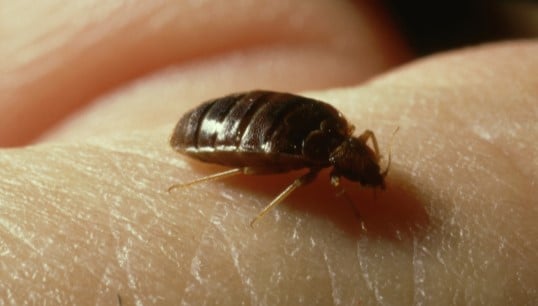Ships vulnerable to infestations of insecticide-resistant bed bugs, medics warn
27 July 2022

Do you get itchy in your cabin? Maritime medics have sounded the alarm over signs of a resurgence of bed bug infestations onboard ships.
A study published by the International Maritime Health Journal warns that bed bugs have once again become a major worldwide public health problem, largely as a result of growing resistance to insecticides. Ships – which have long been affected by infestations – are particularly exposed to the new proliferation and face associated economic and welfare risks, the report stresses.
Researchers from five French maritime and occupational health organisations noted that cases have recently been reported on cruiseships and on a US nuclear submarine. However, they pointed out that there has been little scientific work done to examine the scale of the problem at sea.
Bed bugs usually arrive onboard in luggage and personal belongings and can survive for up to two years without feeding. Although their bites are usually painless, excessive scratching can lead to secondary infections and the bites can also cause insomnia and anxiety.
The researchers found that 27% of French maritime doctors had been told of bed bug infestations onboard and 18% had been approached by shipowners for support in dealing with infestations. More than one-quarter of the doctors said they considered that the problem is increasing.
'Our survey showed that bed bug infestation is a growing issue for French seafarers,' the study concludes. 'While the frequency of infestations appeared still limited, the occurrence of bed bugs has a major impact onboard. Ships are occupational and living spaces altogether. Limited living spaces increase the impact of bed bug outbreaks, as confirmed by physicians' statements.'
The report notes that scientific and governmental agencies have issued no specific recommendation or guidelines to ships on dealing with bedbugs. However, it adds, many passenger ships have well-developed Integrated Pest Management systems with training courses for staff members and protocols on insect or rodent infestation management.
The researchers said early detection of onboard infestations is of critical importance and 'it is essential to inform and educate seafarers on best practice' – especially cruiseship personnel. Any significant outbreaks onboard should be dealt with by specialist professionals, they added.
Tags
More articles
Internet access boost for seafarers after MiFi project extension
A 'lifeline' project ensuring seafarers can gain high-speed internet access while visiting UK ports to contact family and friends has been extended for another year.
Call for new chairs as Maritime UK Diversity in Maritime Taskforce structure expands
Nominate yourself or others for several vacant chair positions at existing networks and several new project lead positions in the refreshed structure of the Diversity in Maritime Taskforce .
